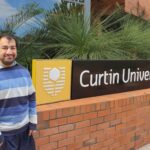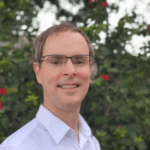Maysoon Saleem, a Curtin University PhD student on a scholarship program from Iraq, is helping to bridge Iraq’s information gap in research and knowledge sharing.
In ancient times, the region of Mesopotamia was the “cradle of civilisation”, and is credited by archaeologists as the birthplace of writing, urbanisation, agriculture, irrigation and learning.
Fast-forward six thousand years and, since the 1980s, the country of Iraq – the modern site of Mesopotamia – has been affected by a constant series of wars, conflicts and sanctions.
Largely unknown is Iraq’s 30-year information gap in research, teaching and knowledge sharing in the higher education sector, which arose from the destruction of universities and libraries; loss of key Iraqi scholars and academics; and lack of access to digital technologies.
To obtain the latest developments in different fields of knowledge, including in library and information science, the Iraqi Government has sent academics on scholarship programs to universities all over the world. One such academic is Maysoon Saleem, a Curtin PhD student and a former associate director of the Department of Library and Information Techniques, Al-Mansoor Technical Institute, and lecturer at Al-Rusafa Administration Institute.
“Iraq has been isolated and we don’t have a lot of communication with other parts of the world, even with other Arab countries. My research is qualitative and collects perspectives from Iraqi and Australian librarians and researchers,” she says.
“When I communicated with Australian librarians, I found that a lot of things were different. The perspectives are different. The systems, facilities, infrastructure, transportation, alarms and timetables are different and they are all really very good.”
Perhaps the greatest challenge for Maysoon was when she travelled to Baghdad International Airport and imagined the adjustments she would have to make to her new life in Australia.
“I just want to let people know that despite the tension, the traditional values in Iraq have not been affected too much. People are still welcome as guests. They are kind and there is a strong sense of hospitality,” says Maysoon.
“Before I came to Australia, my friends joked and were telling me: ‘Be careful. You will be far away – over the Indian Ocean – at the end of the world. Australia is a very hot country. We heard there are snakes everywhere and they might come through your window’.”
However, she found there was nothing to be concerned about.
“Because there are a lot of nationalities here, Australians don’t make people feel embarrassed and they try to help. At Curtin, I’m especially happy because it’s quite a multicultural campus and it’s easy to find halal food,” she says.
Maysoon was recently encouraged by Curtin academics to attend the 2014 ANZCA (Australian and New Zealand Communication Association) Conference on digital communication at Swinburne University. She has also published a paper, “Use of social media by academic librarians in Iraq”, in collaboration with Curtin Associate Professor Anne Aly and Associate Professor Paul Genoni.
For her next step, Maysoon hopes to find employment or volunteer work in an Australian library, which will inform her research through practical experience.
“If I just write the theory, I wouldn’t really have that personal experience; but if I work in libraries, then it would enhance my research and prepare myself for a future job,” she says.
“I would then like to send a summary of my research and my recommendations to the decision makers and leaders in library and information studies in Iraq.”
Learn more about the information gap in Iraq by reading Maysoon Saleem’s paper.



